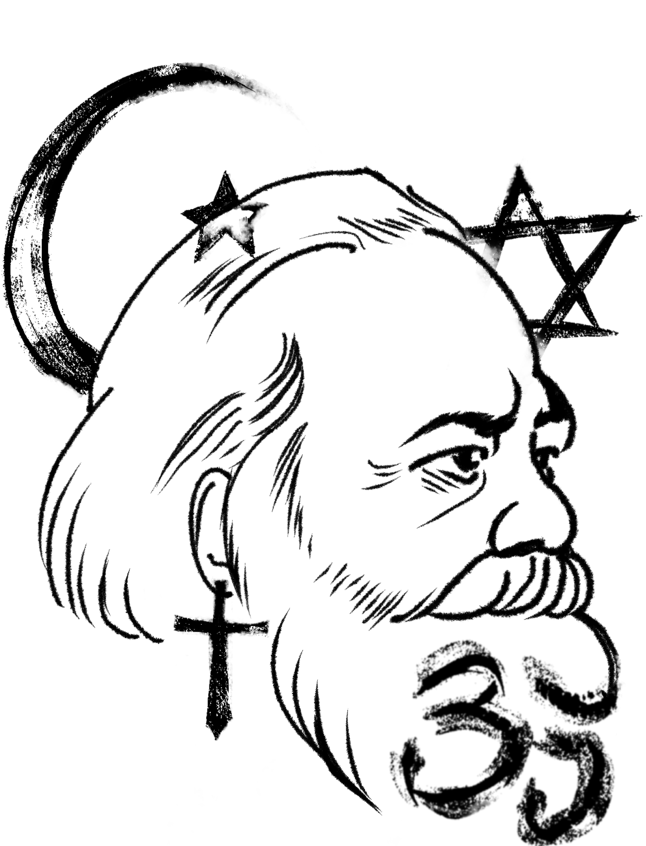Can you be a leftist and religious?
How historic social justice movements have been led by faith leaders
In 1843, Karl Marx wrote that religion “is the opium of the people.”
This phrase has been historically used to criticize religion within leftist spaces. However, Marx himself wrote about religion being a form of escapism for a working class that is suffering from the alienation of capitalism.
I believe that faith is an extremely personal and intimate experience that gives people a value system to abide by. As somebody who is not religious, I see leftist principles as a way to materially enact systemic changes that coincide with religious values. Just like faith, ideology can guide people to fight against oppression and inequality. Thus, I think that people can be both religious and leftist.
Leftist organizing, whether it be through unions, organizations or political parties, should be as diverse as possible, religious communities included!
Leftists and many scholars have correctly identified the role religion has played in justifying brutal periods of colonialism throughout history. However, faith and religion have also contributed to massive and successful social justice movements.
Martin Luther King Jr. was known for his activism and enormous contributions to the civil rights movement, but he was also a Baptist minister. Dr. J. Kameron Carter, professor of theology and Black church studies at Duke Divinity School, said that King “was a churchman from beginning to end.”
Philosopher, professor and political activist Cornel West described King’s dream as a fundamentally Christian one.
“His commitment to radical love had everything to do with his commitment to Jesus of Nazareth, and his dream had everything to do with community, with a ‘we’ consciousness that included poor and working people around the world, not just Black people,” West wrote in an article for the Chicago Tribune.
King was an anticapitalist who advocated for a massive systemic redistribution of wealth to transform the class dynamics in America. He was also firmly against the Vietnam War and criticized America’s imperialistic ambitions in maintaining oppression in Southeast Asia.
The United States was not the only country where Christian leaders have fought against inequality.
Desmond Tutu was the first Black bishop of Johannesburg and the archbishop of Cape Town. Tutu was a prominent figurehead in the fight against apartheid in South Africa and would regularly quote scripture to gain support for change in his country. After Nelson Mandela became president in 1994, Tutu was appointed as the chairman of the Truth and Reconciliation Commission which uncovered the abuses of the apartheid system. In 2013, he launched an LGBT rights campaign in Cape Town and said “I would not worship a God who is homophobic and that is how deeply I feel about this.”
In 1971 Peruvian Catholic philosopher and theologian Gustavo Gutiérrez introduced the idea of liberation theology, which sought to merge theology with Marxist ideas. Theology should be rooted within praxis, and salvation should solve the underlying social and economic issues that affect people.
Communal teachings about equality and mutual aid for others do not just reside within Christianity. My grandfather was Sikh, and I remember him explaining to me the principle behind why everyone sat on the floors of the gurdwara, the Sikh congregational place of worship. He explained to me that the floor provides a place of equal status for everyone to sit at and that food is served for free in the langar (kitchen) regardless of a person’s status. That sense of community can provide a progressive value system that teaches people the importance of treating one another with respect and equality.
Being a leftist often means having to reach across the aisle with people who have different beliefs to gain powerful allies against oppression and injustice. History has provided countless examples of leaders who have used their faith to fight against inequality and thus there is no reason to not have faith in our religious comrades.







